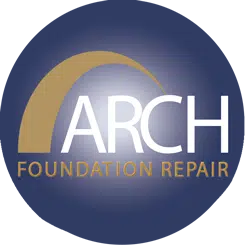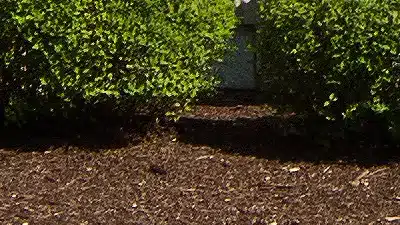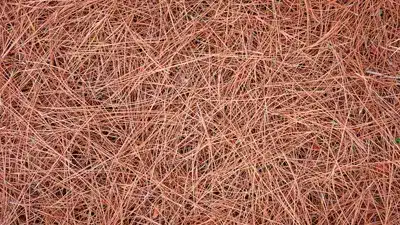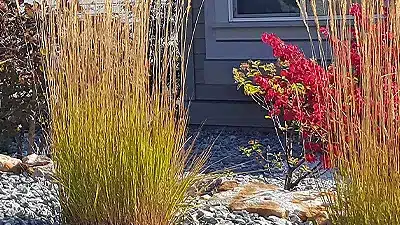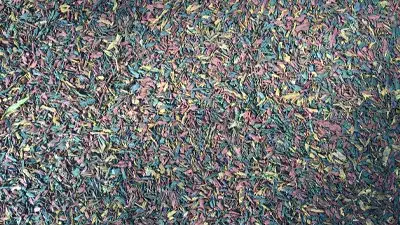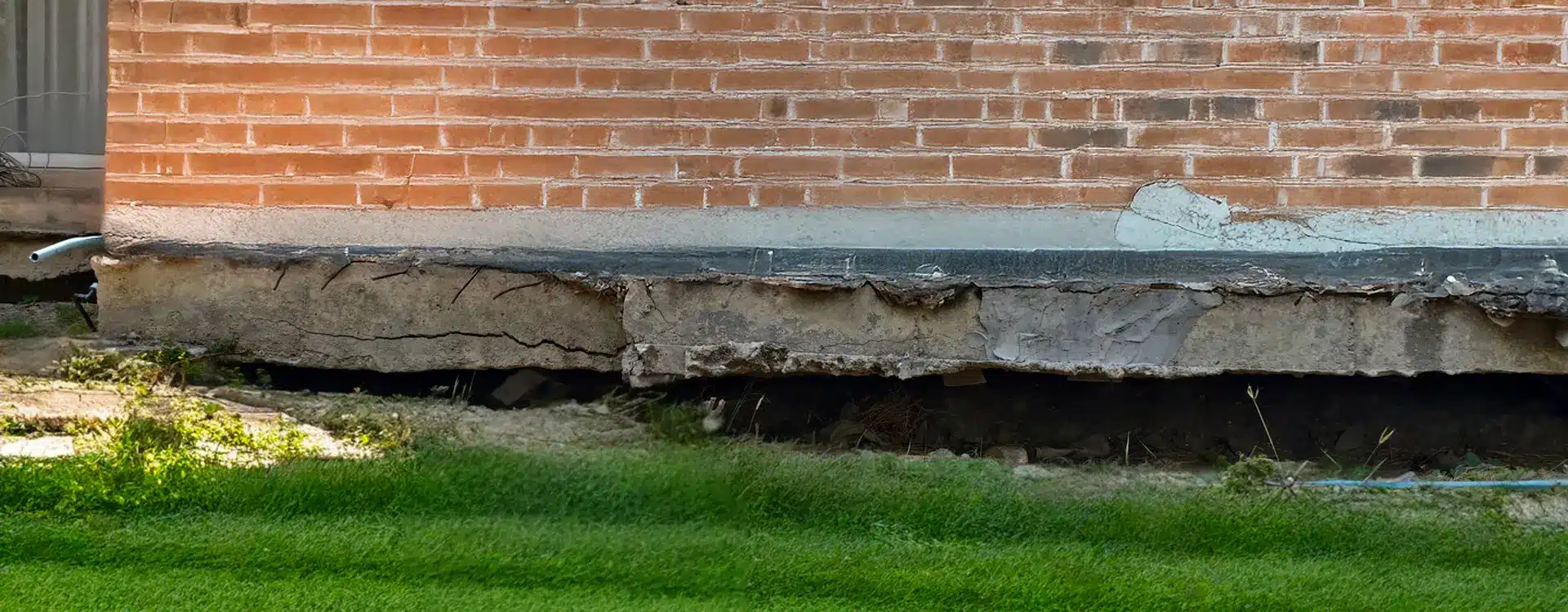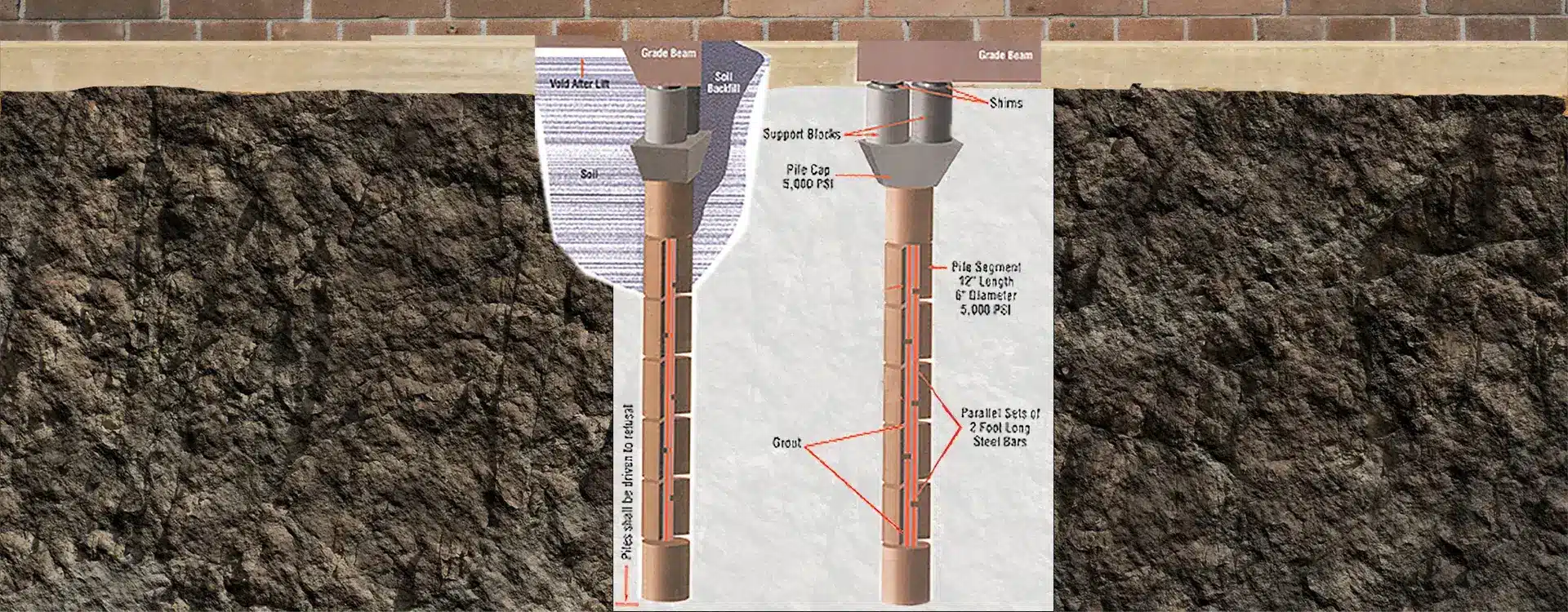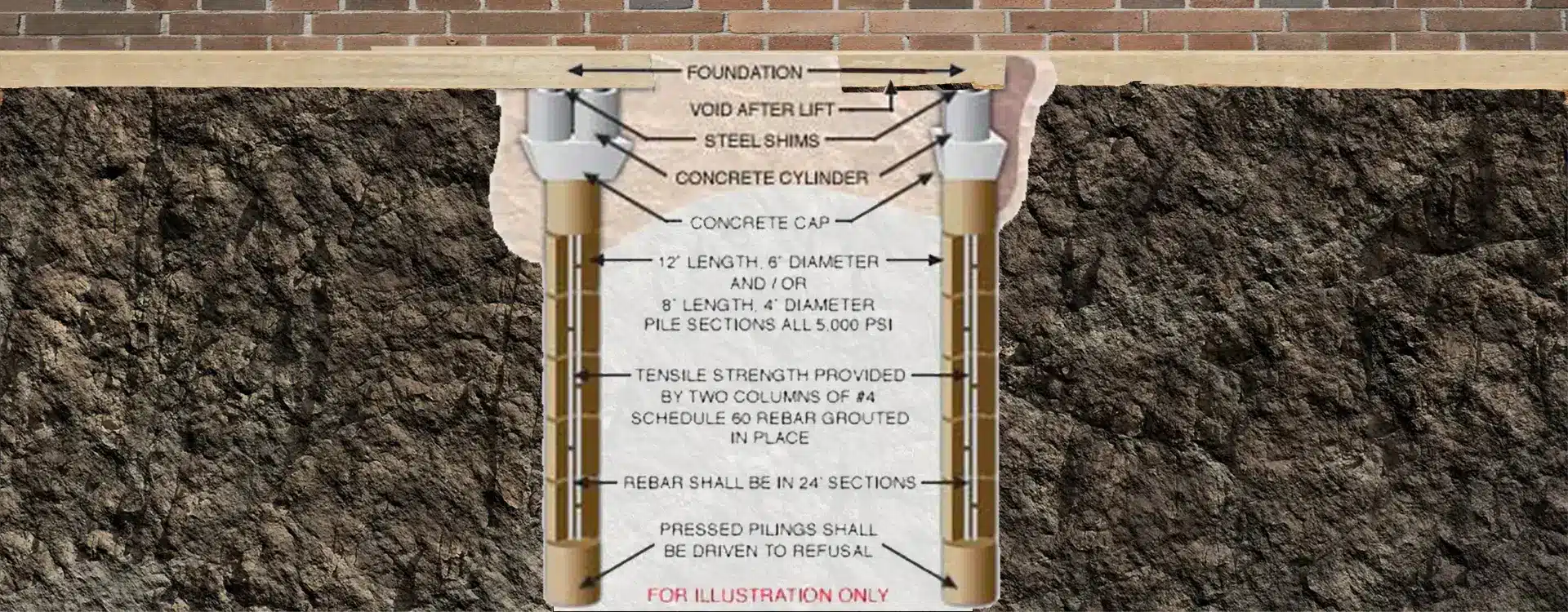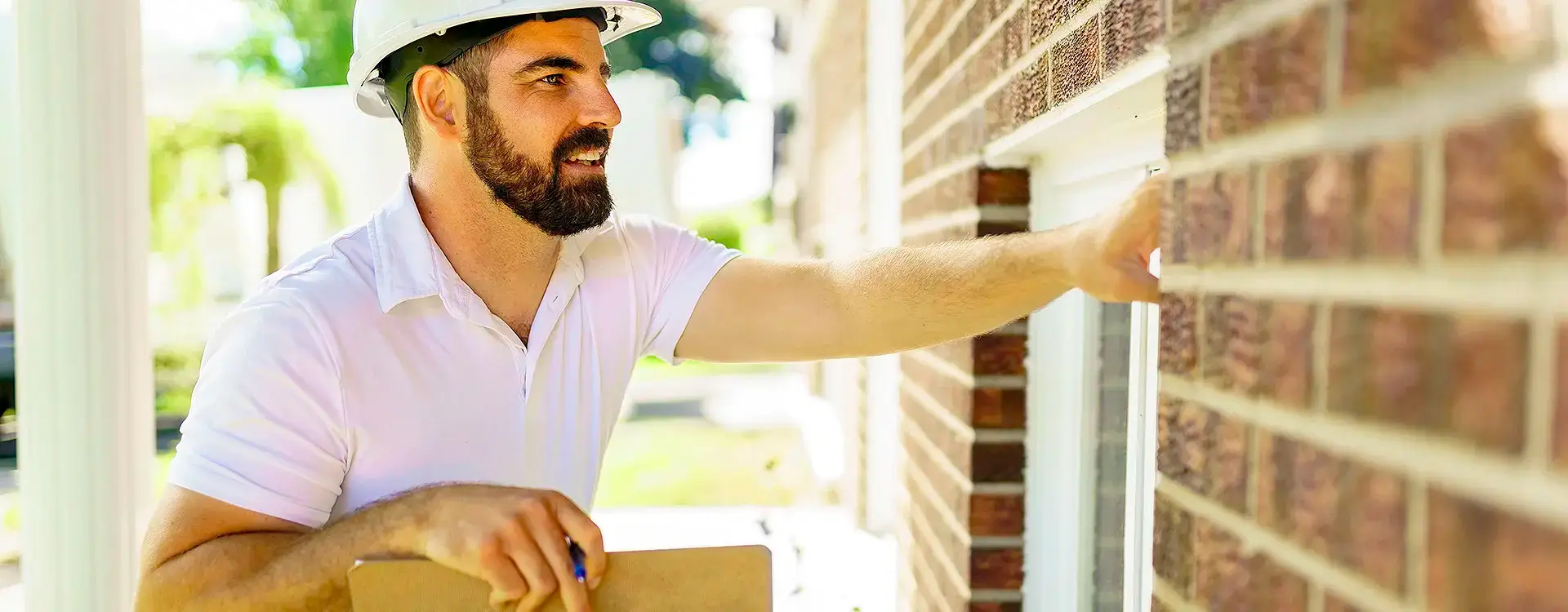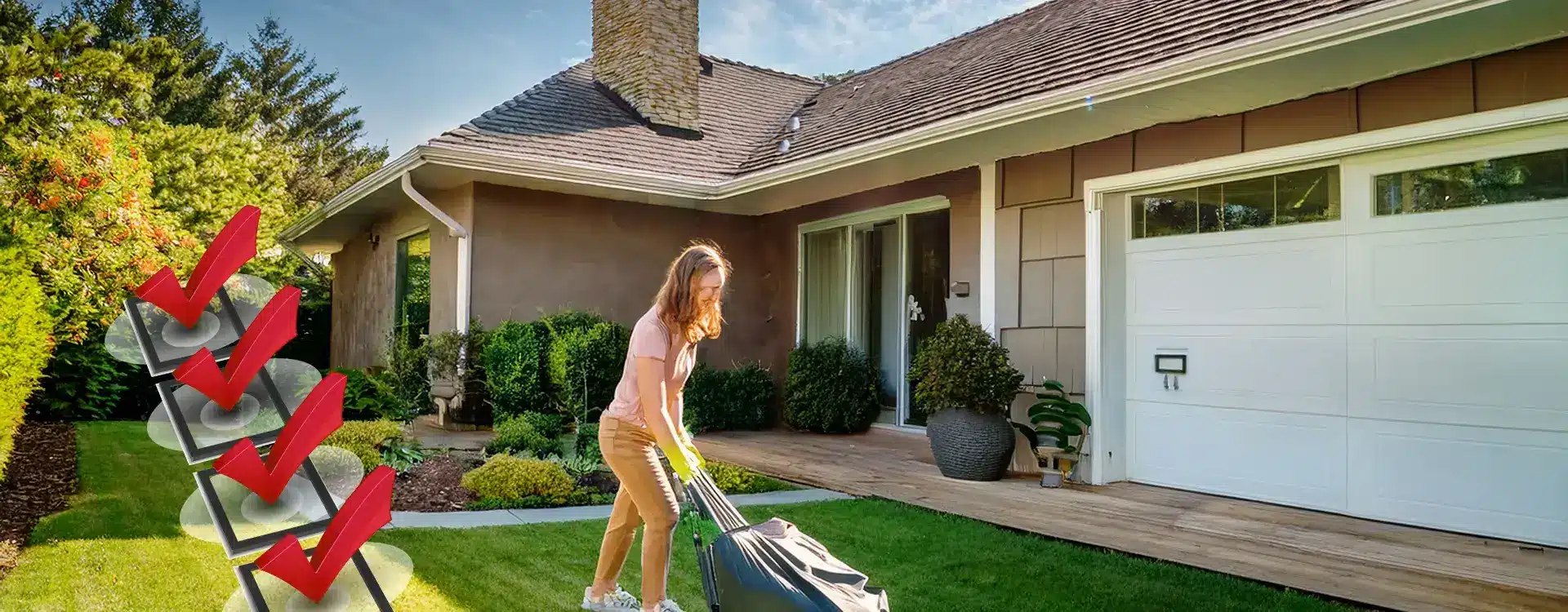Placing mulch around the house foundation opens up a world of choices.
Each type of mulching material has a different look and impact on the foundation and home.
Here are various types of mulch and their suitability for use against a foundation:
Organic Mulches
1. Wood Chips/Bark Mulch
- Pros: They are available, attractive, and decompose, which improves soil quality.
- Cons: They attract termites and other pests while holding moisture against the foundation.
2. Pine Needle Mulch
- Pros: It is lightweight and decomposes slowly. Over time, it adds acidity to the soil, which benefits some plants.
- Cons: It is flammable and might attract pests.
3. Compost
- Pros: Great for soil health, adds nutrients.
- Cons: It may attract pests and break down quickly, needing frequent replenishment.
Our Recommendation: Cedar and Cypress Mulch. They have natural insect-repelling properties and decompose slowly, making them great for use against foundations. Keep mulch at the proper depth and away from your foundation. This protects your home and helps it work better.
Inorganic Mulches
1. Gravel/Rock Mulch
- Pros: It does not decompose or attract pests. It is excellent for drainage and low maintenance.
- Cons: It can be more expensive and does not improve soil quality.
2. Rubber Mulch
- Pros: Long-lasting, does not decompose, good for preventing weed growth.
- Cons: It can cost more. It may look artificial. It can leak chemicals into the soil.
Our Recommendation: Gravel and River Rocks are the best inorganic mulches. They are perfect near foundations because they have excellent drainage, deter pests, and need little upkeep, making them ideal for protecting your home’s foundation.
Best Options for Foundations
Use inorganic mulches like gravel or rock to put mulch by a foundation. They are often the best choice. Here’s why:
- Pest Prevention: Inorganic options do not attract pests. Termites and ants can damage the foundation, but not by inorganic mulches.
- Drainage: Gravel and rocks provide excellent drainage, preventing water from collecting near the foundation. Pooling water around your foundation can cause problems like mold or basement flooding.
- Longevity: Inorganic mulches do not decompose. Meaning they last much longer and need less maintenance over time.
Extra Considerations
- Moisture Control: Use any mulch. But make sure the ground around your home slopes away from the foundation.
- Barrier: Consider using a landscape fabric under the mulch. It will improve drainage and stop weeds.
So What to Use to Mulch Around the House Foundation
Use inorganic mulches for the best performance and low risk to your foundation. Gravel or rock mulch is highly recommended around foundations. They offer excellent drainage, do not decompose, and are unattractive to pests. Do you prefer the look of organic mulch? Then, be sure to take proper precautions against moisture and pests.
